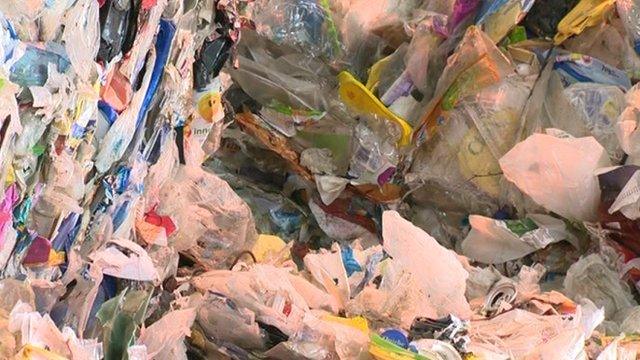Recycling rates for waste in Wales rise again
- Published
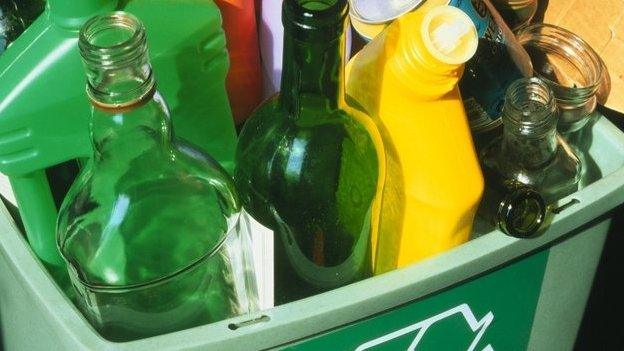
Five of the 22 councils have already hit the 2016 recycling target of 58%
More rubbish is being recycled in Wales than last year with figures showing a 2% rise to 54%.
All Welsh councils need to meet a target of 58% by 2016 with Denbighshire and Monmouthshire and Pembrokeshire already passing that figure., external
But four authorities have seen their rates fall in the last year and Merthyr Tydfil and Rhondda Cynon Taf failed to recycle half of their waste.
Natural Resources Minister John Griffiths backed the figures.
He said Wales led the UK in recycling and was on course to reach targets of 58% by 2016 and 70% by 2025.
"It's great to see that Welsh households and local authorities are continuing to increase the amount they recycle and reuse," he said. "I want to congratulate them for their efforts."
He added councils would get a share of £4m Welsh government funding this year to help them meet the required targets.
Monmouthshire and Pembrokeshire were the most improved local authorities, both seeing increases of 7 percentage points in a year
Denbighshire was already the leading council for recycling, reusing and composting waste in 2012/13 with a rate of 58%
Caerphilly and Ceredigion also achieved the 2016 target rate of 58%
Four councils saw recycling rates fall - Anglesey, Bridgend, Cardiff and Merthyr Tydfil
Rural councils tended to perform better than others, as a group recycling 57% compared to 54% in the valleys and 52% in urban authorities
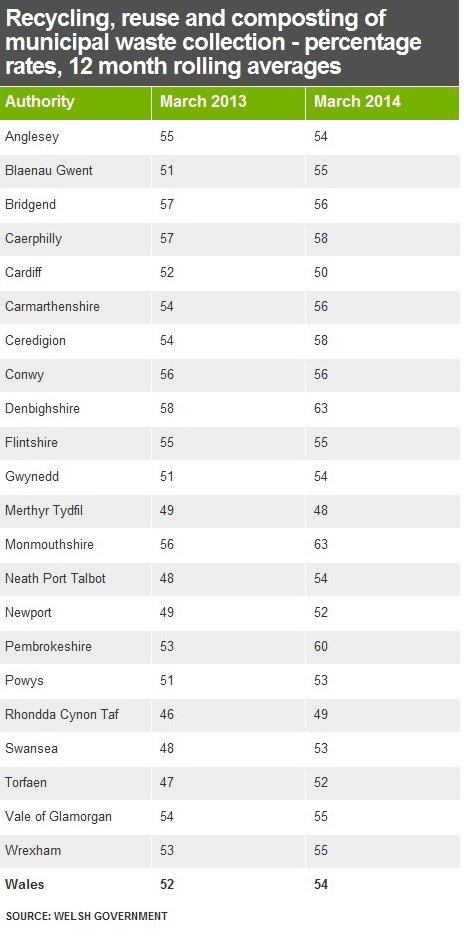
The report from Statistics for Wales notes that recycling rates may vary according to people's willingness to take part in the recycling schemes, and differences in the methods used by local authorities.
In June, a key Welsh government adviser warned household recycling services were too complicated, uneconomic and confusing.
Sustainable futures commissioner Peter Davies called for one system of recycling rather than 22 different ones in each local authority.
- Published24 July 2014
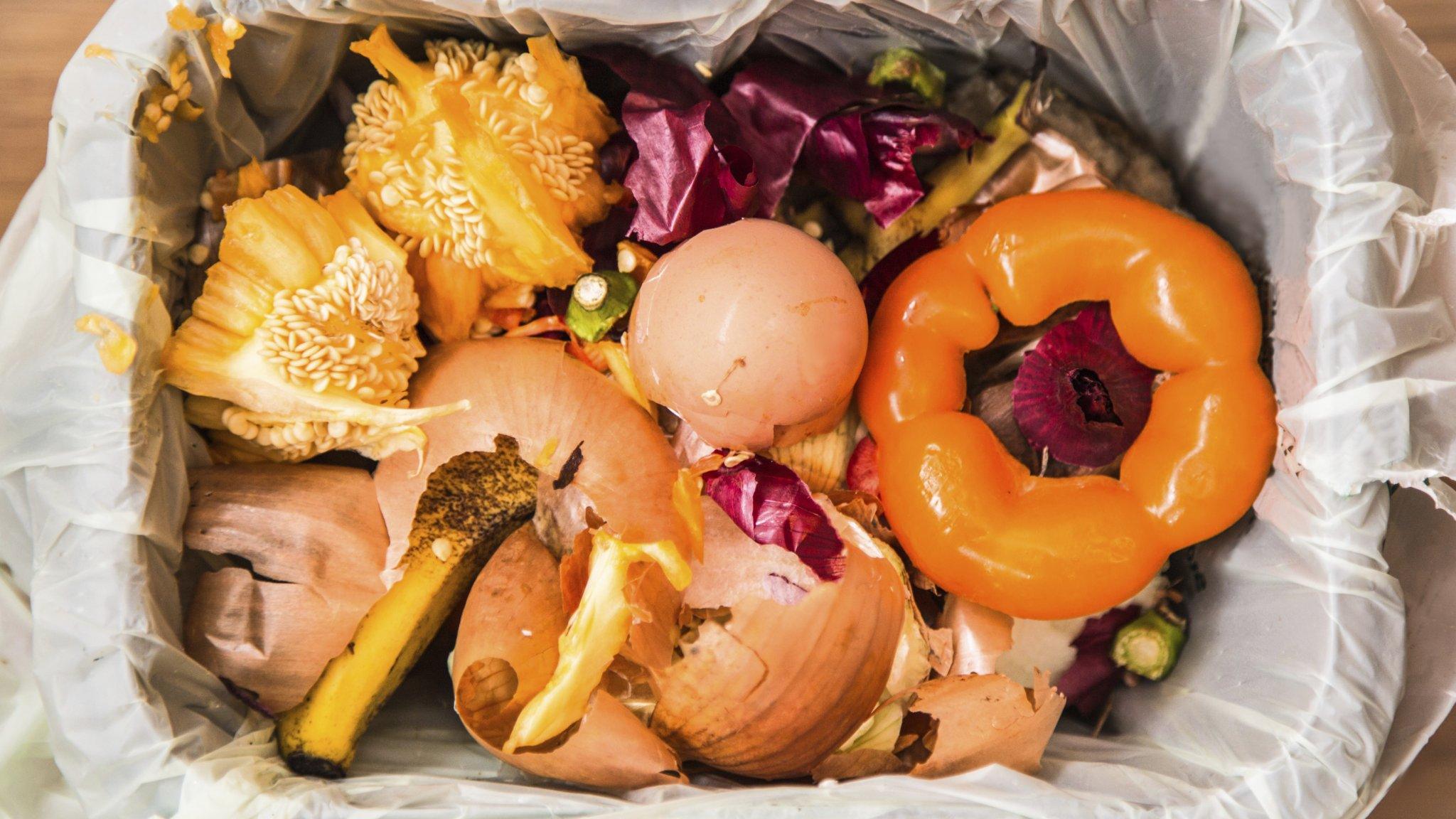
- Published16 June 2014
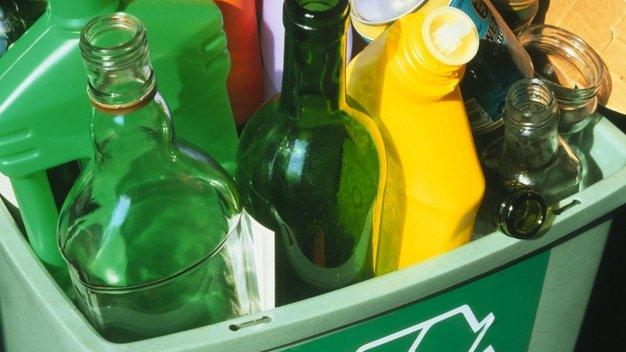
- Published1 April 2014
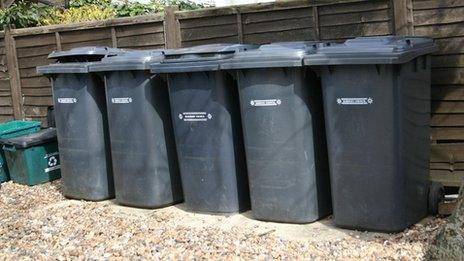
- Published17 November 2013
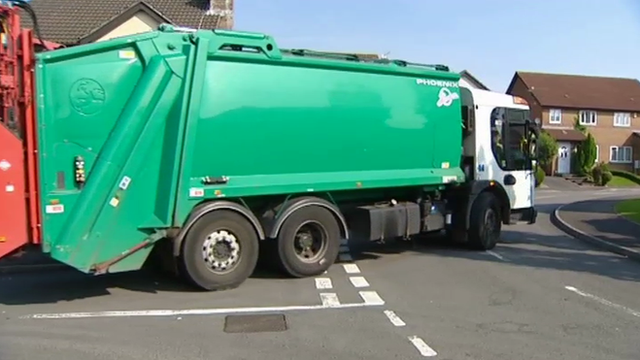
- Published7 November 2013
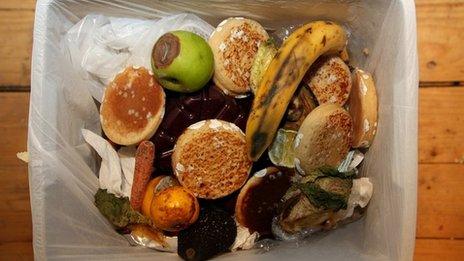
- Published27 August 2013
